#because no way in hell would disney ever make a film that was openly critical of the US government/military
Explore tagged Tumblr posts
Text
The inclusion of HYDRA in the MCU drives me insane sometimes, not gonna lie. @abrooklynboy and I have been yelling about this all day, so I’m going to yell about it on the dash now, too.
I really, really like the comic book version of Bucky’s death and recovery by the Soviets, specifically Vasily Karpov. I love Vasily Karpov in the way that one loves a good villain. He is horrible. He was horrible during WWII, and he’s horrible during the Cold War, too. What he does to Bucky out of sheer pettiness and injured pride is indefensible and tragic.
But I also really love Arnim Zola, again in the way that one loves a good villain. I think he’s an excellent character in the movies specifically because he’s not a sadist. He doesn’t take any particular pleasure in torturing or killing people. He’s driven by the pursuit of knowledge and a love of science. He’s an utterly amoral intellectual who is willing to do anything in service of his research goals, regardless of how much pain he causes or how many deaths it takes for him to succeed in his plans. I find that interesting, especially when compared to the more cartoonishly evil villains like the Red Skull.
The trouble is, as much as I would like to have Karpov and his people find Bucky first, I can’t do that if I want to keep Zola involved in the Winter Soldier Project. The logistics don’t work. Zola is a Nazi. And Karpov may be an evil son of a bitch, but he still absolutely despises Nazis. If he had Bucky in his hands, there’s no reason at all that he would ever reach out to any Nazi, much less one like Zola who is working for the Americans.
On the other hand, if Zola’s people found Bucky first, that would give Zola enough leverage to manipulate Karpov by offering him a deal that 1) undermines the Americans, and 2) gives Karpov control of someone he truly hates. Because Vasily Karpov hates Bucky Barnes, specifically and personally. I believe that he hates Bucky enough that he would cut a deal with Zola if it meant he got the chance to enact his own personal revenge on Bucky.
So I’m stuck in this situation where I have to mash the 616 story and the MCU story together with a lot of handwaving to get a story I can work with that has the characters I like, and it means I have to stick HYDRA in places where they really shouldn’t be (like Department X and the Red Room). And I do think that the whole shadowy-background-organization-pulling-the-strings shtick takes away responsibility from Department X for the evil that they did. And not just Department X -- it does the same to the Nazis and to SHIELD. The fact is that, in the real world, the Nazis and the KGB and the CIA and a fuckton of other groups did evil things entirely of their own volition, not because there was somebody else manipulating them behind the scenes.
Captain America: The Winter Soldier is a good movie. It’s still my favorite MCU installment. But it was definitely pulling its punches by making Project Insight a HYDRA operation. Project Insight is essentially the NSA + unmanned drone strikes -- two things that we already have in the real world. And we have them not because we’ve been infiltrated by evil squid Nazis, but because my country’s government and military have decided on their own to use them. CA:TWS would have hit a lot harder if it had addressed that.
#i do realize that TWS would never have actually gotten away with that#because no way in hell would disney ever make a film that was openly critical of the US government/military#but a girl can dream#i don't even know what to tag this as#meta#maybe?#or#tabby has opinions#i just felt the urge to yell about this today#c: vasily karpov#c: arnim zola#i will now keep the personals away by saying fuck#hc list
8 notes
·
View notes
Text
STAR WARS-SPECULATION #2: Rebel or Lost Cause? *May Contain Spoilers*
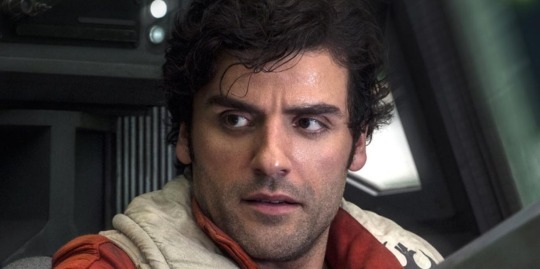
--- During the course of human history there has been many cases of overwhelming tyranny and opression. It can be as small as the dominion of a single creature, or as vast as an entire world. But as they say, even the cornered rat will bite the cat, and give birth to struggle and resistance. Under these circumstances, a rebellion rises to resist and challenge the rule of the oppressors, despite facing unlikely odds. David against Goliath, the Spartans in the battle of Thermopylae, and when speaking of the Star Wars-sequel trilogy, the Resistance and the First Order.
While one can go on to say that the conflict between the First Order and the Resistance is basically a carbon-copy of the Empire versus the Rebellion from the original trilogy, as we don't go deep enough into the history or political aspects of either group to really nail down their differences to their older counterparts. Though from what I gather, the First Order is composed of the remnants of the empire, who by the time of The Force Awakens (2015) is recognized as an extremist following, though not generally seen as a major danger in the eyes of the government (like a space-equivelent to North Korea?). The Resistance is a countergroup acting outside of the galactic government who sees the threath of the First Order and keeps an eye on their acitivties.
Either way, that is not what I am here to talk about today, as my focus will be directed at one of the most principal characters within the Resistance: Poe Dameron.
Played by the very likable Guetamalan-American actor Oscar Isaac, Poe Dameron is an ace X-wing pilot, an agent of the Resistance and the original owner of the droid BB-8. His actions in the first movie, where he stores important information within his droid, is what starts the whole chain of events for the trilogy, an act which rhymes with the actions of princess Leia in A New Hope (1977). Over the trilogy he is portrayed as a brave, cocky and hotheaded brother in arms. He is a generally well-received character, especially in regards to his bromantic (and apparently quasi-romantic) relationship with Finn, but has over the progression of the last two films been the subject for critique. Not as red-hot of a critique as some other aspects of the sequels, but enough to make you raise your eyebrowns a bit. The main critique being, is he REALLY neccesary?
Don't get me wrong, new members of the Resistance are vital for new movies, otherwise the Resistance might have looked like an old folks home. Poe Dameron should have all the ingredients neccesary to be the posterboy of the the Resistance: he is the member with the most screentime, his actions set off, he is played by a very likable actor and he is a great pilot. But the issue is, while it is all there, it is not really utilized well. The further one goes with these movies, the more one realizes that he is the least developed of the main characters. His role in TFA is minor, he acts as an agressor in a generally disliked sideplot in The Last Jedi (2017), and his part in The Rise of Skywalker (2019), while the richest in content, feels un-earned because the direction of the character is neither clear or given enough development.
So considering that his role doesn't add a whole lot in the trilogy after the first part, was Poe Dameron's continuous role in the sequel-trilogy REALLY neccesary? Objectively, I would have to say no. I mean if a character doesn't have a clear purpose, you either give him one, scale him back or kill him off, so that you can give more room for the other characters. I believe the therm is “kill your darlings.“ With that said, I can understand why one would be reluctant to kill him off to begin with; Oscar Isaacs is the most likable actor ever, something that translates into his performance, and in turn, the character. While Poe Dameron is pretty pointless, he is still hard to completely dislike. This illustrates the power of a talented actor, that he or she can someimes overwin bland or nonsensical writing.
So we have a character that is perfectly likable and who could have been a great addition to the franchise. There certainly was potencial in him, so what could have been done to make the most of it? Well, below are some of the directions I think could have been taken:
A) Poe Dameron dying in TFA: This one feels appropriate, considering it was the original intent of the moviemakers. As stated by Oscar Isaac's in Business Insider (https://www.businessinsider.com/star-wars-poe-was-supposed-to-die-2016-3?r=US&IR=T), his character was originally supposed to die. While it would be a shame to see a likable character go so fast, it might have solved a couple of issues and added something more to the first part of the trilogy. Besides the fact that it could have added an extra layer of danger to the plot, in that any character could die at any point, it would have also put all of our eggs in the basket of a deserting stormtrooper and a random scavenger. Plus, killing him off wouldn't have made his role in TFA much smaller anyway. Poe not being in the two following movies could have also left much bigger room for the development Rey, Finn and several other characters. Also, to see how the heroism and sacrifice of a single Resistance-member would affect Finn would be really interesting, considering that Finn would have owed his freedom and life to a complete stranger (who was just recently his enemy) that would have died before he could have even had a chance to thank him. How does that make a person who is trying to flee from the battlefield, feel? I can't help but to think of a similar situation in the Green Lantern-comics (DC), where veteran member of the Green Lantern Corps, Abin-sur, crashlands on Earth and gives his power ring to Hal Jordan, a human pilot, before dying. Abin-sur's death had a considerable effect on Hal Jordan, in that besides becoming a new corps member, but became one by taking over the ring of the corp's most beloved and respected members. That is a hell of legacy to live up to, not to mention a massive responsibility. Something like THAT would have been a pretty thought-provoking storyline for Finn.

B) His carelessness has personal consequences in TLJ: In the beginning of TLJ, Poe Dameron disobeys an order to evacuate and instead engages a First Order fleet. This is a foolhardy act, as even though they take down a Stardestroyer, a lot of Resistance pilots die in the process. While it has several consequences within the movie, such as barely having any pilots left for the remainder of it, he himself do not seem overly affected by it, dismissing it as the casualties of war. But if you really think about it, should there not be some resentment aimed at him besides from his superiors, and shouldn’t he feel more guilt? I mean, Rose Tico's sister died in that battle. Wouldn't it have been more interesting Rose and others resent him for his careless actions? This could've been a more likable struggle for him, as he should have been the one to learn that war is not just about defeating the enemy, but saving the ones you love. If he had done this and in the process displayed a sense of leadership in a time of great need, maybe his transformation into a commander in TROS would have felt more organic?
C) Poe goes with Finn to Canto Bight instead of Rose Tico: This one could have worked as a continuation to B. Canto Bight isn't exactly a favorite moment in TLJ, even for the ones who like TLJ. The main criticism being that it is not that interesting of a planetary environment; basically just feeling like a casino with aliens. Another critique is that it felt like a detour that was too disconnected and did ultimately not add that much to the other parts of the movie. One way of making the movie less fragmented, as well as give Poe something better to do, could have been to give him more or less the same role as Rose Tico. Besides further developing his and Finn's friendship, it could have even been a way of putting that awkward kiss in the third act to better use, and confirm some legitimacy to the whole Finn X Poe-ship. While I am not staunch supporter of the ship, I have to admit that it would have been interesting. With that said, I don't think it would have made everyone happy. I mean lets face it, if people get upset about a black dude in a stormtrooper-uniform, one can only assume how they would have reacted to an openly gay or bi character in Star Wars. But at the same time, if people were pissed off at even the good bits in TLJ, why not go all the way and piss off every stuck up parent sitting in the theaters worldwide while you're at it? Certainly would have been ballsiest move ever, especially considering it’s a Disney-film.
D) Poe staying at Leia's side in TROS: As I have written before, the main issues with TROS is messy storytelling and a rushed pace. One of many things that adds to this is by suddenly providing Poe with a backstory while simultenously trying to give him a bigger role than before by having him travel with Rey and Finn. What if they had scaled him down a little, let him stay with Leia as they plan for the upcoming attack? Not only would it have been more powerful for him to be there with her as she passes away, but also motivate him to step into the role of a mature leader more. I realize that this is a little sensitive, as it may have required additional footage of Leia in order to work. Though to be fair, being respectful is one thing, making a good movie is another. And also, if they can remake young Leia for a flashback, why can't they just remake old Leia a bit for some extra material?
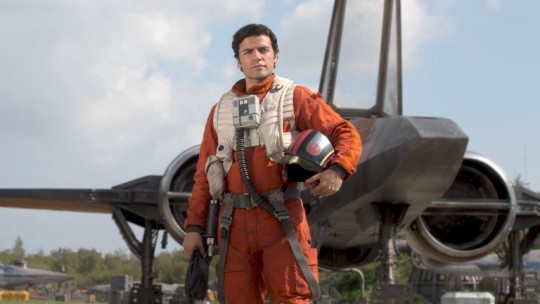
Could any of these alternatives have added something good to the movie, or subtracted from the main story? You tell me. No, seriously, tell me what you think, I would love to hear your thoughts on the matter in the comments. Do you have any ideas of your own that could have helped make Poe Dameron the most iconic pilot of the sequel era? Feel free to discuss this with me :) ---
#star wars#poe dameron#finn#rey#leia#sw#x-wing#Speculation#rebel or lost cause#TROS#TLJ#TFA#The last Jedi#The Force Awakens#the rise of skywalker#theory#analysis#jcl#oscar isaac
46 notes
·
View notes
Text
The reception of Venom really raises a lot of questions about the reception of DCEU films, particularly Batman v Superman.
Both films had a similarly negative reception. Their Rotten Tomatoes scores are almost identical. Both were seen as further proof that only Disney and the MCU should be making these films. But the reception and treatment of Venom hasn’t been anywhere near as intensely or vocally negative as was the case with Batman v Superman.
I should note I have don’t have any strong feelings about Venom. I don’t think it deserved the reception it got and was a fairly entertaining film, which worked largely due to Tom Hardy who can make anything better.
The people who hated Venom have, for the most part, forgotten about it. No one is out there leveling the kind of ugly personal attacks towards Ruben Fleischer that were standard in the weeks and months following BvS’s release where Zack Snyder was treated less as a director who made a film people didn’t like and more as someone who had done something unspeakably awful, who was an active detriment to the characters, comic book films and film making as a whole, someone who needed to be removed from the equation completely and any trace of his original vision or involvement purged from memory before the films could ever hope to begin the long, difficult road to winning back the approval of people who saw Batman v Superman less as a film they disliked and more as a personal affront that required nothing less than the most extreme response to make sure no one ever thought of doing something like it again.
Venom has been allowed to continue to exist. There have been no calls for Sony to completely reroute the creative teams or toss aside the whole film and start again. There has been no onslaught of articles and videos about what went wrong or how to “save” Venom. No one is demanding that the sequel be an extended apology for the first film. Hell, some of the people who were so vocal about hating BvS have been openly enthusiastic about Venom.
It would be weird if you were to encounter someone who hated Venom so much they derailed any positive posts about it or harassed and insulted people who liked it or felt actual anger when they say any defenses of it or hated the film so much they mocked the people involved experiencing personal tragedy, all of which has happened with Batman v Superman.
So what’s going on here?
I have a few theories as to why that is and all of them undermine common criticisms towards Batman v Superman or at least show that the criticisms have more context to take into account than people saying them have been willing to provide.
- The first and most logical explanation is that there were no real expectations for Venom. Batman v Superman was less a film than an event people had been dreaming about for decades. It was the culmination of nearly a century of hoping and wishing. People had never gotten to see George Reeves and Adam West or Chris Reeve and Michael Keaton or Brandon Routh and Christian Bale. It was a film people had been wanting for years and years and they had very specific ideas about how these characters should be portrayed. This was a film they had planned out in their heads to the last detail and they couldn’t wait to see that vision translated to the big screen.
As such, they did not react well at all to Zack Snyder choosing such a major event, a historic meeting of two icons, to tell his own kind of story with them, one that deviated massively from what they wanted and expected from such a film and comic book films in general. Much like The Last Jedi, BvS was a film that either didn’t know or didn’t care about the expectations surrounding it and did it’s own thing instead. That’s not good or bad. It’s just how things played out.
By contrast, there were no major expectations with Venom. People might have hoped to see a Venom solo film but it wasn’t an event eighty years in the making and not something they had been dreaming of for as long as they knew about these characters. They didn’t have an idea of how this film should be that they were furious at not getting nor did they care enough about the character to get all that angry.
In addition, Sony’s track record with Marvel films and films in general over the past few years has already taken a lot of hits in contrast to Warner Bros who have made extremely successful and acclaimed DC adaptations both in the past and concurrently with Batman v Superman’s release so people expected a lot.
- The second is that Venom was a lighter film overall in contrast to the common complaints about BvS being “grim/dark/grimdark/hopeless/nihilistic/etc” so people were more forgiving which in turn undermines common responses people have that BvS didn’t get such negative reviews because it was too serious but entirely due to it’s quality.
- The third is that Batman v Superman looks and feels like a Zack Snyder film to it’s very core and the last few years have shown just how intense and personal the hatred is for him as a director and person and how eager people are to paint him as a fundamentally terrible person who is unable to understand the very idea of heroes and altruism. By contrast, Ruben Fleischer’s name has been mostly separate from the criticism towards Venom. There’s no basically personal contempt towards him. Shit, I imagine a lot of people don’t even know who the director of Venom was and that’s at least partially because he doesn’t have a specific and personal style that people love or hate. You can spot a Zack Snyder film from a mile away but probably wouldn’t know Ruben Fleischer directed a film unless you saw his name.
- The fourth is that Batman v Superman was simply an incredibly ambitious film and people were harsher towards it for failing to reach the lofty heights it set for itself. BvS wasn’t just trying to be a superhero film. It set out to be one that defined the genre, that framed iconic heroes in a new way and opened up new possibilities for storytelling both with these characters and comic book films as a whole. People will forget a film that aims low and hits it’s mark but will be a lot harsher to one that aims high and misses and I think that’s something we need to examine closer, lest we end up in a situation where ambition is discouraged which I fear is where we are already.
- The fifth is that Venom is better than it’s critical reception would imply which means that DCEU fans should be afforded similar opportunities to speak out against what we see as unfair criticisms and enjoy our films regardless which we haven’t been given.
- The sixth ties into the first which is that people have been portrayals of these characters that they consider to be definitive and they expected that from BvS as well as expecting characters to be on screen as fully formed entities in contrast to Venom who, due to being an anti-hero, was given space to be portrayed as an imperfect character who was afforded time to grow into a hero and was never expected to be a paragon or ideal hero at any time (This is also a major reason why ideal heroes have lost so much ground to anti-heroes over the past few years and why writers say they would be hesitant to tackle a character like Superman).
I’m not even strawmanning or speculating as I’ve seen people outright say they expect Superman to be that perfect hero right from the moment he shows up. He isn’t allowed space to grow nor is he allowed room for error or for moments of weakness. His fans want him to show up on screen fully formed and they will not accept any less, no matter if Zack Snyder makes it clear that the traditional characterization is the endgame. Again, I’m not speculating. I’ve seen people say even the promise and end goal of Superman being as they want him to be wasn’t enough for them to ease up towards the decisions made.
Maybe I’m missing something and I’m happy to hear from others with their own views on the subject but I don’t think you can look at this situation where two films in the same genre with similar comparisons made to the MCU are seen as virtually the same in terms of quality yet one has inspired three years of outrage and vitriol with people still saying the films can only succeed once both it and it’s creator are completely removed from the equation while the other is given basically a free pass and not see a problem with it or fail to understand why DCEU fans would be angry at how our film has been treated compared to another.
24 notes
·
View notes
Photo

Toy Story 4 (2019)
2019 marks the completion of the John Lasseter era at Pixar and Walt Disney Animation Studios with Toy Story 4 (credited as story writer; uncredited as producer) and Frozen 2 (as producer). Lasseter’s disgraceful end as the creative head at both studios was marked by scandal, in which the Walt Disney Company cut ties as quietly as possible. At one point untouchable because of Pixar’s creative output – not a single dud from Toy Story (1995) to Toy Story 3 (2010) – Lasseter’s recent years had reeked of complacency, dependence on sequels, and having played a part in erasing the final vestiges of hand-drawn animation at the famed Walt Disney Animation Studios. Pixar’s impeccable record is no more; the groundbreaking studio is fallible after all. With Lasseter now at Skydance Animation (to the dismay of many), his final involvement with a Pixar film continues the legacy of arguably the most consistent animated film series ever.
Directed by Josh Cooley and with a screenplay by Stephany Folsom (her cinematic debut) and Andrew Stanton (1998′s A Bug’s Life, 2008′s WALL-E), Toy Story 4 had languished in development hell for years. An army of writers have doctored the story since 2014, so it is difficult to understand who contributed what. For those who were children when Toy Story and Toy Story 2 (1999) were released to theaters, Toy Story 3 appeared to be the fitting farewell to Woody, Buzz Lightyear, and their friends. Pixar, which has claimed that it does not pursue sequels unless there is artistic and narrative sense to that sequel – they have some explaining to do about the Cars sequels – has charged forward with this newest entry in the Toy Story mythos.
Now with Bonnie, the cast of toys must contend with the fact she is about to attend Kindergarten. Worried that Bonnie will have a difficult day of Kindergarten orientation and the fact that – though he would never openly admit it – Bonnie has not given him much attention recently, Woody hops into Bonnie’s backpack and has a hand in the creation of Forky. Forky, believing himself to be trash, makes numerous attempts to toss himself into the wastebasket, much to Woody’s dismay. As Bonnie’s family embarks on a vacation, Woody and the gang must prevent Forky (whose scenes are frequent and comedically overcooked) from disposing himself. While at a mountainous town, numerous situations will introduce the likes of other toys including Gabby Gabby (a ‘60s-era doll who longs to be loved by a child); the miniscule Giggle McDimples; prize toys Ducky and Bunny; motorcycling daredevil Duke Caboom; and Woody’s old flame, Bo Peep.
Without detailing the film’s conclusion and, as someone who rewatched my VHS of Toy Story and DVD of Toy Story 2 ad nauseam as a child, Toy Story 4 does not feel as strong a conclusion as its immediate predecessor. Yet Toy Story 4 deepens the series’ existential themes and characterization of Woody – its moral center after extinguishing his homicidal feelings towards Buzz in the original – at the unfortunate expense of almost the entirety of the cast of toys. Nevertheless, Woody’s character growth has been tremendous to behold. His steadfast loyalty – so often a source of adoration from moviegoers – is called into question here. His unwritten sheriff’s code to be of service, embodied by Jimmy Stewarts or Gary Coopers in decades’ past, clashes with the “lost toys” without children to call their own. The misadventures and toy-sized heists characteristic of Toy Story are derailed by unfortunate timing and increasing stakes. No wonder the frustration towards Woody – among the characters and the audience – is so palpable.
The fragmentation of the plot and physical separation of its characters creates a handful of storylines that, with the film’s sharp editing, are comprehensible. Toy Story 4, when analyzed through its editing (and even when excluding flashbacks and fantasies) and writing structure, is the least linear of the Toy Story films. Characters are not so much reacting to a singular event as they are personifying or espousing the film’s themes. One’s ability to tolerate this structure will be tested, but screenwriters Folsom and Stanton are content to not devolve into lengthy expositions or soliloquies that too explicitly outline their intended subtext. Gabby Gabby’s apparent and ultimate fates will elicit instant, strong reactions that might just be universal. Woody’s final decisions in the film’s closing minutes will be viewed through the prism of life experience. Many of the questions Toy Story 4 presents once Forky has been introduced have been central to the series, with variations with each passing installment. What does it mean to realize one’s obsolescence? How does one come to terms – if at all – with that realization? When does a lifelong dream transform into obsession? Folsom and Stanton are not interested in whether there is a “correct” way for a toy to exist – note that every toy in this film defines their existence in bringing joy to a child, even those toys have been lucky enough to do so.
After years of late Lasseter-era twist villains and films with so little nuance in trumpeting their vaguely liberal inclusive messages, this is a refreshing change of pace. Whatever answers viewers find will not arrive easily and will change with time. The most worthwhile art tends to be as such.
Toy Story 4′s characters are stand-ins for human relationships with a coat of comedic paint to make the most difficult moments bearable for everyone. To ask so bluntly the nature of meaningful existence might be dismissed in a live-action film as maudlin, manipulative (film is always manipulative; the effectiveness and appropriateness of such manipulation is not beyond criticism). Inside Out (2015) and Coco (2017) are the best recent examples of this from Pixar’s filmography of how animation lowers these barriers to posing such ideas. The studio’s success is not because they created imaginative worlds filled with talking toys, rodents that can cook, or a post-apocalyptic humanity too dependent on technology. Nor is it the storytelling the studio justly prides itself upon. It is because of the raw ideas found within their films, when the excesses of plots are discarded.
youtube
The production design by Bob Pauley (1993′s The Nightmare Before Christmas, all three previous Toy Story films) – in addition to the ever-increasing photorealism of Pixar’s backgrounds and character animation – is superb. Pauley juxtaposes the dusty, earthy antiques store that the film spends much of its runtime with the neon-lit carnival beaming its lights into the night sky. More than the previous Toy Story films, this edition allows the use of colors to help guide the dominant moods in respective scenes. The darker, subdued antiques store scenes lend a feeling that something or some secret lurks around the next cobwebbed corner – evoking claustrophobic spaces, ideological and personal entrapment (the placement of “Midnight, the Stars and You”, which is most famous for its use in 1980′s The Shining, plays a key contribution). The carnival/fair has occasionally been a source of macabre elements or thematic irony in Western cinema; it is a tradition that at least goes as far back to 1920′s The Cabinet of Dr. Caligari (more recently, and though not a film, the third season of Stranger Things contributes to that tradition). The summer carnival of Toy Story 4 is more liberating than most, leaning into whatever escapist nostalgia the audience holds – of which Toy Story could be a part of. The fourth installment of this series is the most atmospheric; one wishes that the filmmakers could have slowed down a tad to allow a fuller appreciation of the various settings.
Pickier than most film score composers, Randy Newman (1984′s The Natural, 2009′s The Princess and the Frog) nevertheless has become a staple with Pixar and has created, single-handedly, Toy Story’s musical identity. Recorded, in typical Randy Newman, with an enormous orchestra of Los Angeles-area musicians at the 20th Century Fox studio named to honor his uncles (Emil, Lionel, and especially Alfred were gifted composers contracted to Fox), Newman’s ability to integrate musical ideas he has not revisited for twenty or more years with newer motifs is most apparent in the film’s busiest scene. The cue that plays there is “Operation Pull Toy”, which utilizes character- and plot-driven motifs drawn and rearranged beautifully for this newest film. But standing above the rest is “Parting Gifts & New Horizons”, which plays during a fateful moment and a series of fond farewells. The Americana that Randy Newman incorporated through the series and was especially acclaimed for before working on the original Toy Story appears, without restraints, brass instruments backing, and high strings leading. Though not as distinguished as previous Toy Story scores, Newman knows when to pull the emotional strings with his sweeping melodies.
To digress slightly: in isolated parts of Newman’s score (the brief theme beginning at 4:04 of “Parting Gifts & New Horizons” included), I yearn for Newman scoring for an American Western film.
In the recording studio, Tom Hanks (as Woody) and Tim Allen (as Buzz Lightyear) admitted that neither could record their lines without being overwhelmed by emotion. Hanks claimed that he could not even face the crew as he neared his final moments of dialogue. Another member of the cast, Don Rickles (Mr. Potato Head), passed away in April 2017 – well before any voice actors began work on the film. Rickles’ family urged Pixar to see if a performance could be pieced together through archival recordings. Poring over almost a quarter-century of voice work from outtakes and recordings for promotional materials, Disney parks, and video games, a brief, but serviceable performance was spliced together by Pixar. Rickles is credited as Mr. Potato Head in the film and he, along with animator Adam Burke, is one of the film’s two dedicatees.
As a disappointing decade in mainstream American animation closes with sequels and the ignominious departure of a figure central to the industry, Pixar’s artistic future is uncertain. Pixar’s new chief creative officer is Pete Docter (2001′s Monsters, Inc. and Inside Out). Docter, who has been with Pixar since 1990, is not likely to fundamentally transform the studio’s mission – as outlined by Lasseter – or artistic direction. He is noted, however, for imbuing his films with his deep sense of morality. Combined with the fact that Pixar intends to move away from sequels in the immediate future, will the studio regain its form after an inconsistent decade? Toy Story 4 is, by way of its structure and overuse of Forky, the weakest in Pixar’s most venerable series. That standard, however, is comparing greatness with excellence.
My rating: 8/10
^ Based on my personal imdb rating. My interpretation of that ratings system can be found here.
#Toy Story 4#Josh Cooley#Pixar#Stephany Folsom#Andrew Stanton#John Lasseter#Tom Hanks#Tim Allen#Annie Potts#Tony Hale#Keegan Michael Key#Jordan Peele#Madeleine McGraw#Christina Hendricks#Don Rickles#Keanu Reeves#Ally Maki#Randy Newman#My Movie Odyssey
1 note
·
View note
Text
Breaking Bad Actors
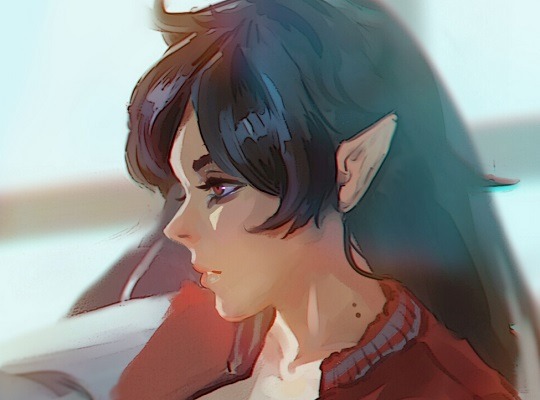
The myth of “Go Woke Go Broke” is hilarious to me. Everyone is out here reporting that, if you actually have a social conscious about your productions or business, you end of tanking your profits by alienating those who don’t “agree” with that position. This ain’t it, bud. Some of the most progressive shows on television, are some of the most revered. Avatar: The Last Airbender literally has no white people in it and no one cares. The show is good and respects the cultures it pulls from to build that world. Hell, even Korra has it’s moments, when it’s not up it’s own ass with the abrupt shift toward everything Avatar was against. Adventure Time was one of the best cartoons on television for it’s entire run. It grew up with the audience and never got preachy about it’s politics, even if the ending was a little forced. F*ck, man, Steven Universe exists. That sh*t ain’t my flavor but i get why it’s popular. Before anything, Steven Universe is a good show. It tells a decent story but the characters therein are what drive that show’s popularity. A stable of characters that are, effectively, all lesbian. “Woke” content can be great when the representation is integrated into the show organically. Owl House does a good job with this, or, at least it does so far. We’ll see if they start forcing things going forward. You start running into trouble when that sh*t is forced.
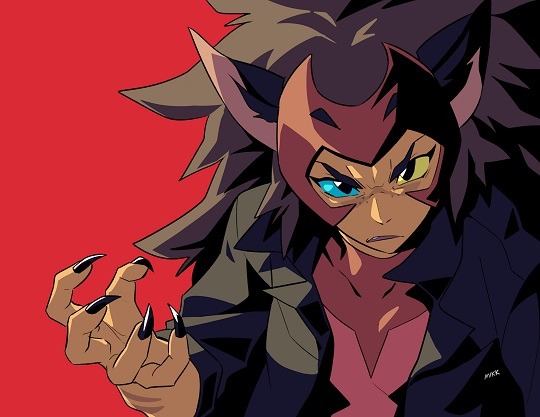
She-Ra and the Princesses of Power is how you don’t do diversity in your shows. Look, i love Catra as a character. She’s the best thing about that show. Scorpia and Entrapta re close but Catra is the only character with any semblance of an arc. I'm glad Catra got her happy ending but it was a f*cking slog getting there. The problem with the new She-Ra as a whole, is that it’s an exercise in virtue signaling. This is a bad show to begin with, bad writing, poor direction, rambling plot, but calling out the lack of quality earns you the title of sexist or anti-female or whatever else, because the diversity of the show has been weaponized by bad actors for the cause. It’s wild to me because it’s sister show, Voltron: Legendary Defender, does the exact same sh*t and is still beloved, even if the last two seasons were less than ideal. Why is there such a stark difference between the two shows? It comes down to the quality of the narrative, the focus of the production. Voltron had a story to tell. It's characters were developed and grew along with the narrative. There was a ton of diversity in that show, even a whole ass gay marriage at the end, and no one was wielding pitch forks about any of that because it was organic to the story the creators wanted to tell. She-Ra was a framework for the show runner to preach at an audience. It fell into the same trap that Star Wars under Kathleen Kennedy did and fans responded in kind. Hell, the Castlevania adaptation is one of the best shows airing now, and there was a legit bisexual love scene where Alucard was visibly bottomed and no one bat an eye, never mind the race bent characters turned fan favorites. Isaac, I'm looking directly at you. You don’t go broke when you go woke. you go broke when you get antagonistic about your sh*tty narrative being called out for what it is and use the diversity in your show as a shield from criticism. If your sh*t is bad, there isn't any amount of black dude or gay chicks that can cover that sh*t up, bro. F*cking make a better show.
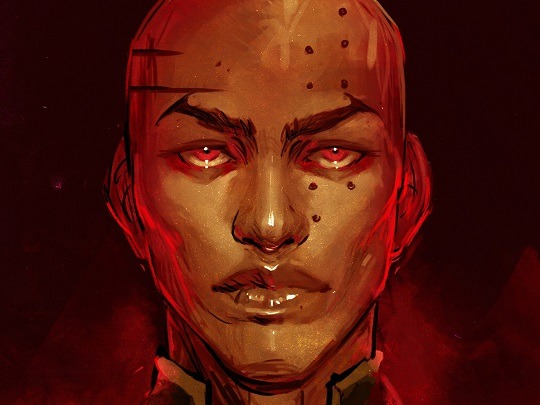
I actually follow a lot of right-wing blogs and watch what could be considered toxic male YouTube channels specifically to understand that point of view. I don’t agree with anything they ever say, but I would prefer not to exist in an echo chamber. I need to have properly diverse opinions and takes to be well informed. I'll admit, though, it is exceptionally hard to see their logic, mostly because it’s racially charged nonsense, but i get why they're angry. A lot of it does have to do with entitlement and ignorance but, under all of that backwards nonsense, there is a valid point which should be considered; No one wants to be told what to think. Overtly. You can‘t put whatever message you want in anything you make, as long as it’s subtle and clever. Take Get Out for instance. That sh*t is a straight up accusation of white people and their predatory ass nature but they love that sh*t. Jordan Peele spent an hour and forty-four minutes, calling these motherf*cker out on their bullsh*t and they gave him an Oscar for it. Audiences rewarded his veiled sermon about the parasitic nature of white “culture” with fifty-seven times his budget, in profit for the studio, catapulting his directing career into the stratosphere. How the f*ck did he pulled that off when Brie Larson became the arch nemesis of every neck beard, toxic man-child, and MAGA cultists on the entire interwebs for just saying that we should have less stories about white dudes? Subtlety. Get Out is a masterclass on how to say something career-ending, while packaging it in an incredibly palatable way. Before anything that film is excellent. The writing is on point. The message is cleverly buried under layers of outstanding performances and deft direction. You’re too entertained to consciously realize you’re being directly accused of being sh*tty people. Cats aren’t looking to engage intellectually with their entertainment so you can technically say whatever you want, however you want, as long as you distract them enough to miss the sermon on a conscious level. Larson openly making her stance known to Hollywood, while commendable, is too easy. It's too direct. Sh*t makes you a target, not a hero.
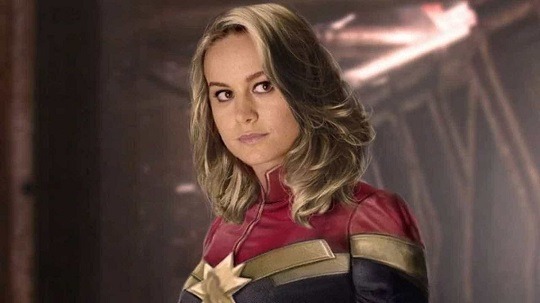
Diversity matters. I think that sh*t should be in everything because the world, itself, is mad diverse. A lot of the culture here, in the states, is driven by people who look like me. Fashion, music, sports; The stuff that get the youth going is all manufactured by people with melanin. It’s mad disingenuous to present a “Hollywood so white” face to the world when the world looks so much more colorful than that. If this year has taught us anything, it’s that there is a very vocal minority that hates to see faces which don’t look like their own, prosper. Entire cities have burned because of it. Entire careers have been lost because of that. The answer isn’t to go the other way. The answer isn’t making “The Force Female.” The force was already female. Ahsoka Tano, Darth Talon, Mara Jade, and Darth Treia were all female but also great f*cking characters. Rey was a plot device that cheapened the already rich and diverse universe that Lucas allowed great creators to expand. The force was already female, and black, and Asian, and white, and blue, and green, and red, and orange, and whatever else because it was designed to be that way. Star Wars failed and sent Disney into a panic because they let a chick with an inferiority complex and massive ego, do whatever she wanted with a franchise that has existed for forty f*cking years, because Twatter has opinions and so does she. Kennedy forgot to make sure the plot around those opinions was good enough to distract you from her politics. She forgot to tell a good story and just decided to preach. No one wants that sermon in a movie, not even the most Woke motherf*cker in the world.
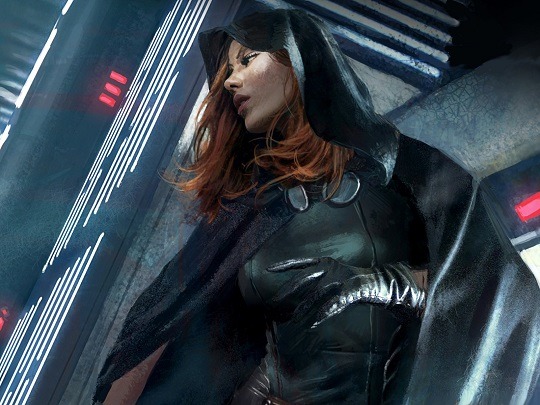
As a creator, myself, i get it. I’ve been on the other side of that Tumblr activism and, more than anything, it feels like if you don’t agree with whoever’s politics, you are automatically the problem. I mean, i got called racist for the way i speak by a black chick, while being black myself. It was surreal and stupid. This chick didn’t like the tone of two reviews i wrote, on a blog with eleven year’s worth of content. Like, for real? Okay. I type how i speak on that blog and i can’t help that i speak with an “urban” flair. I grew up in the ghetto. I speak to my friends like this because they grew up in the same neighborhoods. I actually have a firm grasp on grammar and syntax. I’m a proper writer by trade, working toward getting my first novel published and, guess what? It’s chock full of f*cking diversity. Not because I'm preachy, but because that’s a realistic portrayal of the whole ass world. Because i grew up in a neighborhood that had White people and Mexican people and Asian people and Indian people and Native people and Pacific Islanders and Fijians and whatever else. The world is, inherently, diverse and catering to one extreme or the other is f*cking ridiculous to me. Just tell good stories with strong characters. If the narrative is accessible, you can inject whatever the f*ck you want to say directly into the audience but you have to have a great story to start from. You have to make those colorful characters real. You have to package that bitter pill with a sugary coat so it goes down easy for those who would refuse the dose. If not, you’re just going to antagonize the audience and no one is going to give you the time of day. They're just going to tell you to get out.
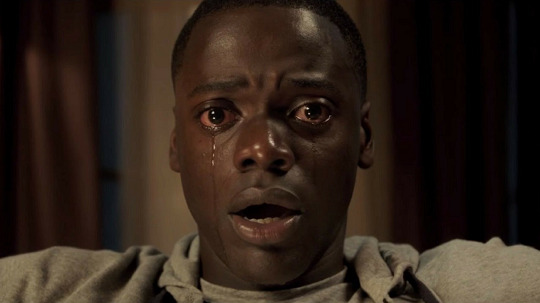
0 notes
Text
Breaking Bad Actors
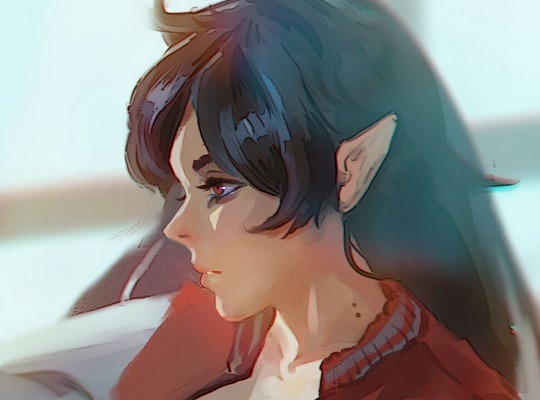
The myth of “Go Woke Go Broke” is hilarious to me. Everyone is out here reporting that, if you actually have a social conscious about your productions or business, you end of tanking your profits by alienating those who don’t “agree” with that position. This ain’t it, bud. Some of the most progressive shows on television, are some of the most revered. Avatar: The Last Airbender literally has no white people in it and no one cares. The show is good and respects the cultures it pulls from to build that world. Hell, even Korra has it’s moments, when it’s not up it’s own ass with the abrupt shift toward everything Avatar was against. Adventure Time was one of the best cartoons on television for it’s entire run. It grew up with the audience and never got preachy about it’s politics, even if the ending was a little forced. F*ck, man, Steven Universe exists. That sh*t ain’t my flavor but i get why it’s popular. Before anything, Steven Universe is a good show. It tells a decent story but the characters therein are what drive that show’s popularity. A stable of characters that are, effectively, all lesbian. “Woke” content can be great when the representation is integrated into the show organically. Owl House does a good job with this, or, at least it does so far. We’ll see if they start forcing things going forward. You start running into trouble when that sh*t is forced.
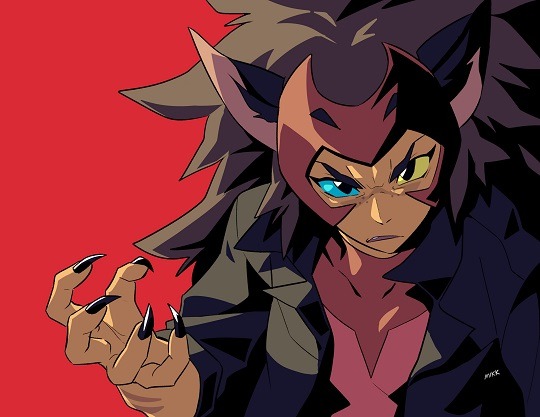
She-Ra and the Princesses of Power is how you don’t do diversity in your shows. Look, i love Catra as a character. She’s the best thing about that show. Scorpia and Entrapta re close but Catra is the only character with any semblance of an arc. I'm glad Catra got her happy ending but it was a f*cking slog getting there. The problem with the new She-Ra as a whole, is that it’s an exercise in virtue signaling. This is a bad show to begin with, bad writing, poor direction, rambling plot, but calling out the lack of quality earns you the title of sexist or anti-female or whatever else, because the diversity of the show has been weaponized by bad actors for the cause. It’s wild to me because it’s sister show, Voltron: Legendary Defender, does the exact same sh*t and is still beloved, even if the last two seasons were less than ideal. Why is there such a stark difference between the two shows? It comes down to the quality of the narrative, the focus of the production. Voltron had a story to tell. It's characters were developed and grew along with the narrative. There was a ton of diversity in that show, even a whole ass gay marriage at the end, and no one was wielding pitch forks about any of that because it was organic to the story the creators wanted to tell. She-Ra was a framework for the show runner to preach at an audience. It fell into the same trap that Star Wars under Kathleen Kennedy did and fans responded in kind. Hell, the Castlevania adaptation is one of the best shows airing now, and there was a legit bisexual love scene where Alucard was visibly bottomed and no one bat an eye, never mind the race bent characters turned fan favorites. Isaac, I'm looking directly at you. You don’t go broke when you go woke. you go broke when you get antagonistic about your sh*tty narrative being called out for what it is and use the diversity in your show as a shield from criticism. If your sh*t is bad, there isn't any amount of black dude or gay chicks that can cover that sh*t up, bro. F*cking make a better show.
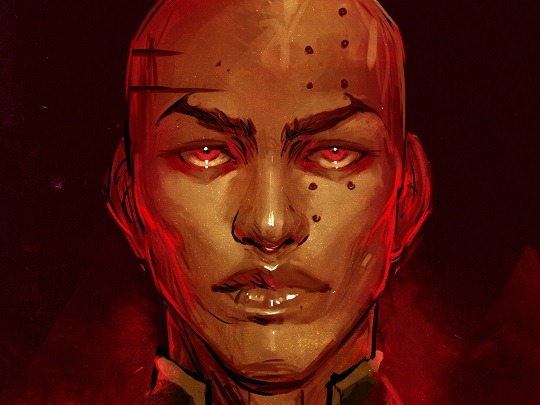
I actually follow a lot of right-wing blogs and watch what could be considered toxic male YouTube channels specifically to understand that point of view. I don’t agree with anything they ever say, but I would prefer not to exist in an echo chamber. I need to have properly diverse opinions and takes to be well informed. I'll admit, though, it is exceptionally hard to see their logic, mostly because it’s racially charged nonsense, but i get why they're angry. A lot of it does have to do with entitlement and ignorance but, under all of that backwards nonsense, there is a valid point which should be considered; No one wants to be told what to think. Overtly. You can‘t put whatever message you want in anything you make, as long as it’s subtle and clever. Take Get Out for instance. That sh*t is a straight up accusation of white people and their predatory ass nature but they love that sh*t. Jordan Peele spent an hour and forty-four minutes, calling these motherf*cker out on their bullsh*t and they gave him an Oscar for it. Audiences rewarded his veiled sermon about the parasitic nature of white “culture” with fifty-seven times his budget, in profit for the studio, catapulting his directing career into the stratosphere. How the f*ck did he pulled that off when Brie Larson became the arch nemesis of every neck beard, toxic man-child, and MAGA cultists on the entire interwebs for just saying that we should have less stories about white dudes? Subtlety. Get Out is a masterclass on how to say something career-ending, while packaging it in an incredibly palatable way. Before anything that film is excellent. The writing is on point. The message is cleverly buried under layers of outstanding performances and deft direction. You’re too entertained to consciously realize you’re being directly accused of being sh*tty people. Cats aren’t looking to engage intellectually with their entertainment so you can technically say whatever you want, however you want, as long as you distract them enough to miss the sermon on a conscious level. Larson openly making her stance known to Hollywood, while commendable, is too easy. It's too direct. Sh*t makes you a target, not a hero.
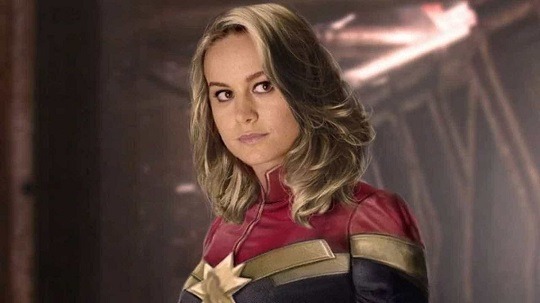
Diversity matters. I think that sh*t should be in everything because the world, itself, is mad diverse. A lot of the culture here, in the states, is driven by people who look like me. Fashion, music, sports; The stuff that get the youth going is all manufactured by people with melanin. It’s mad disingenuous to present a “Hollywood so white” face to the world when the world looks so much more colorful than that. If this year has taught us anything, it’s that there is a very vocal minority that hates to see faces which don’t look like their own, prosper. Entire cities have burned because of it. Entire careers have been lost because of that. The answer isn’t to go the other way. The answer isn’t making “The Force Female.” The force was already female. Ahsoka Tano, Darth Talon, Mara Jade, and Darth Treia were all female but also great f*cking characters. Rey was a plot device that cheapened the already rich and diverse universe that Lucas allowed great creators to expand. The force was already female, and black, and Asian, and white, and blue, and green, and red, and orange, and whatever else because it was designed to be that way. Star Wars failed and sent Disney into a panic because they let a chick with an inferiority complex and massive ego, do whatever she wanted with a franchise that has existed for forty f*cking years, because Twatter has opinions and so does she. Kennedy forgot to make sure the plot around those opinions was good enough to distract you from her politics. She forgot to tell a good story and just decided to preach. No one wants that sermon in a movie, not even the most Woke motherf*cker in the world.
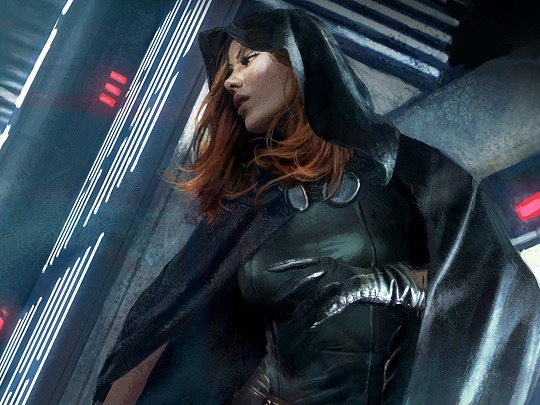
As a creator, myself, i get it. I’ve been on the other side of that Tumblr activism and, more than anything, it feels like if you don’t agree with whoever’s politics, you are automatically the problem. I mean, i got called racist for the way i speak by a black chick, while being black myself. It was surreal and stupid. This chick didn’t like the tone of two reviews i wrote, on a blog with eleven year’s worth of content. Like, for real? Okay. I type how i speak on that blog and i can’t help that i speak with an “urban” flair. I grew up in the ghetto. I speak to my friends like this because they grew up in the same neighborhoods. I actually have a firm grasp on grammar and syntax. I’m a proper writer by trade, working toward getting my first novel published and, guess what? It’s chock full of f*cking diversity. Not because I'm preachy, but because that’s a realistic portrayal of the whole ass world. Because i grew up in a neighborhood that had White people and Mexican people and Asian people and Indian people and Native people and Pacific Islanders and Fijians and whatever else. The world is, inherently, diverse and catering to one extreme or the other is f*cking ridiculous to me. Just tell good stories with strong characters. If the narrative is accessible, you can inject whatever the f*ck you want to say directly into the audience but you have to have a great story to start from. You have to make those colorful characters real. You have to package that bitter pill with a sugary coat so it goes down easy for those who would refuse the dose. If not, you’re just going to antagonize the audience and no one is going to give you the time of day. They're just going to tell you to get out.

0 notes